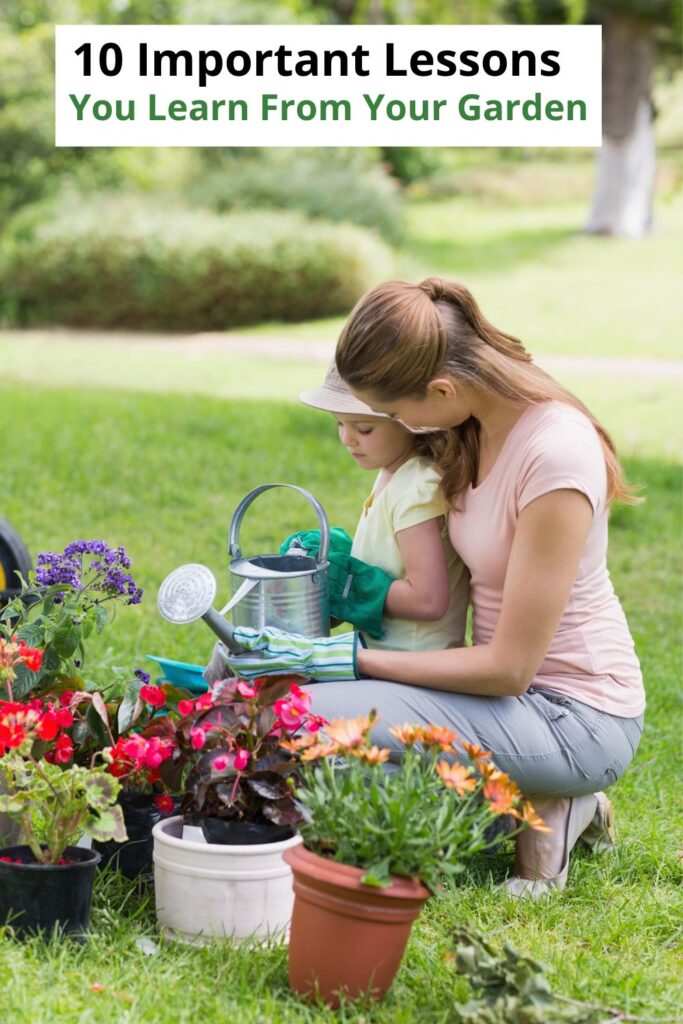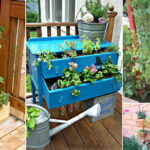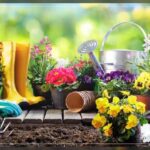Gardening is often perceived as a simple pastime, primarily associated with the cultivation of flowers and vegetables. However, beneath the surface lies a myriad of profound life lessons that can significantly shape one’s perspective on both personal growth and relational dynamics. This exploration delves into the transformative power of gardening, illuminating the wisdom gleaned from tending to soil and seed alike.
In this modern age, where digital interfaces predominate, the tactile and sensory experiences offered by gardening provide a refreshing contradiction. Engaging with nature cultivates patience, persistence, and gratitude—qualities that too frequently elude us amid the hustle and bustle of contemporary life. By embracing the metaphorical richness of gardening, one can unearth invaluable insights that resonate deeply, particularly with younger audiences seeking meaning and connection in an ever-evolving world.
Let’s delve into the multifaceted lessons imparted by the earthy endeavor of gardening.
Understanding the Cycle of Life
At its core, gardening is an authentic manifestation of the natural cycle of life. Observing the ebb and flow of growth, decay, and regeneration illuminates the fundamental truth that nothing lasts forever. Sprouting seeds emerge with vigor after being nestled in dark, nutrient-rich soil, only to face distinct challenges from the environment. Similarly, the inevitable transition from vibrant blooms to withering petals serves as a poignant reminder of life’s fleeting nature.
This cyclical philosophy engenders a deep appreciation for the present moment. As we cultivate our gardens, we learn to navigate the dualities of joy and despair, success and failure. Each plant serves as a metaphorical reflection of our aspirations and struggles; moments of triumph when a seed germinates or a flower blooms are mirrored by the disappointment when weeds invade or a drought strikes. Embracing this duality fosters resilience, encouraging individuals to accept setbacks as integral components of the greater journey, rather than insurmountable obstacles.
The interplay between birth and decline becomes a powerful teacher. In cultivating awareness around topics like sustainability and environmental consciousness, gardening can propel young individuals toward eco-activism. This awareness extends beyond the garden’s boundaries, fostering a sense of responsibility towards the planet—an invaluable lesson in stewardship.
Nurturing Relationships Through Care and Patience
Gardening is not solely an individual endeavor; it often involves collaboration and community. The act of sharing responsibilities, resources, and triumphs fosters a sense of camaraderie among gardeners. Whether it’s exchanging seeds, tending to communal plots, or simply sharing stories of growth, interdependence flourishes within diverse gardening communities.
Moreover, nurturing plants requires an abundance of patience and consistency. This aspect of gardening translates seamlessly to relationship dynamics. Just as plants need time, sunlight, and water to thrive, relationships demand nurturing, forgiveness, and genuine care. Observing how plants respond to gentle prodding versus harsh treatment highlights the importance of empathy and understanding in human interactions.
As young individuals grapple with complex interpersonal relationships, these gardening insights can serve as essential guiding principles. The ideal of cultivating mindfulness and intentionality in connections fosters stronger bonds and fosters open communication, allowing relationships to thrive in an increasingly disconnected world.
Embracing Diversity: Lessons in Ecology
The garden is essentially a microcosm of the world, showcasing rich biodiversity. Each plant brings unique attributes to the ecosystem, contributing to its vibrancy and balance. This interdependence is a crucial lesson in recognizing the strength derived from embracing differences among individuals. Much like the symbiotic relationships found in nature, diversity among people fosters resilience, creativity, and innovation.
In an era characterized by social justice movements and calls for inclusivity, gardening serves as an organic reminder of the importance of diverse voices. The coexistence of various species within a garden underscores how unique perspectives can coalesce to create a flourishing environment—this idea extends into communal spaces, workplaces, and broader societal structures. Young activists can draw parallels between gardening and social dynamics, harnessing these insights to advocate for equity and justice within their communities.
The attempt to cultivate a monoculture, whether in the garden or society, can stifle innovation and adaptability. Recognizing the value of diversity is not merely a political or ideological standpoint; it’s a practical necessity for sustainability. In cultivating healthy gardens, we learn to celebrate imperfections and embrace the beauty of unpredictability.
Learning from Failure and Experimentation
Despite meticulous planning and preparation, gardening is rife with unpredictability. Adverse weather conditions, pests, and soil imbalance can thwart even the most earnest endeavors. This reality offers a vivid lesson in the nature of failure. Just as a plant may not flourish despite care, individuals too may encounter obstacles in their personal goals. Embracing failure not as an endpoint but as a stepping stone toward growth cultivates a mindset rooted in resilience and innovation.
Experimentation is intrinsic to both gardening and personal development. Missteps in the garden—diluting the wrong fertilizer or misplacing seeds—can lead to unexpected discoveries. The willingness to experiment and innovate can result in learning new techniques or planting varieties previously untried. By fostering a sense of curiosity and exploration, young individuals are encouraged to approach life with an open mind, welcoming challenges as opportunities for advancement.
Such an ethos becomes crucial in an era where fear of failure often paralyzes potential. Embracing mistakes and reframing them as learning opportunities not only fosters personal growth but also cultivates a culture of creativity and exploration in a broader societal context. This adaptation is essential as we confront the rapidly evolving landscapes of technology, activism, and environmental challenges.
Cultivating Mindfulness and Mental Well-being
Finally, the act of digging in the earth has been linked to improved mental health outcomes. The therapeutic benefits of gardening can be profound; as individuals immerse themselves in tending to plants, they may find solace in the sensory experiences of nature—the earthy scents, vibrant colors, and tranquil sounds of a garden create an environment conducive to mindfulness.
Gardening serves as a meditative practice, allowing individuals to disconnect from the cacophony of modern existence. The simple act of nurturing life can ground one in the present, providing an avenue for reflection and self-awareness. The inherent challenges, coupled with the joys of growth and discovery, can lead to enhanced emotional well-being.
As mental health awareness burgeons among younger populations, integrating gardening into wellness practices presents a powerful solution. Encouraging exploration of this accessible, meaningful activity can empower individuals to reconnect with themselves and their environments, fostering healthier, more balanced lives.
In conclusion, the life lessons gleaned from gardening are manifold. The intricate relationship between nature and personal growth offers a rich tapestry of insights that resonate deeply in today’s society. By understanding and embracing these lessons, young individuals can cultivate not only gardens but also lives imbued with purpose, resilience, and interconnectedness. Through nurturing the soil, we may indeed be nurturing our very souls.









Leave a Comment